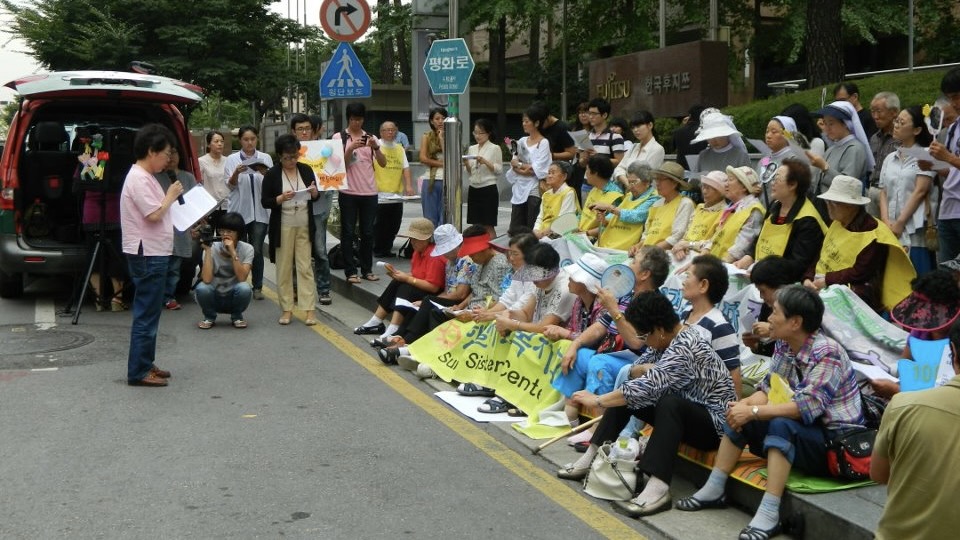In yet another ruling, on Thursday, December 21, the South Korean Supreme Court upheld two rulings by lower courts that ordered Japanese companies to pay compensation to 11 Korean forced labor victims under Japanese colonial rule.
Thursday’s ruling upheld two appellate court rulings against Mitsubishi Heavy Industries Ltd. and Nippon Steel made on lawsuits filed between 2013 and 2014 by several victims of war-time forced labor.
The case against Nippon Steel was filed in 2013 by seven victims of forced unpaid labor. The victims were reportedly drafted between 1942 and 1945 as World War II raged on, and were never paid by either Japan or the factory. None of the seven petitioners are alive today.
Similarly, the case against Mitsubishi was filed in February 2014 by three surviving female victims and a family member of a deceased victim, who were forcibly enlisted as part of Korean Women’s Volunteer Labor Corps and sent into hard unpaid labor at an aircraft factory in Nagoya in 1944.
The Supreme Court ordered Nippon Steel and Mitsubishi to pay around KRW 100 million to KRW 150 million (around USD 77,000 to USD 115,000) per victim or plaintiff.
The ruling comes at a time when the conservative administration of President Yoon Suk-yeol has been pushing for closer military ties with Japan, often at the expense of national interests.
This is the second time that the country’s Supreme Court has ruled in favor of the victims of forced labor seeking compensation. In 2018, the court in two different verdicts had upheld similar rulings against Mitsubishi Heavy Industries Ltd. and Nippon Steel, confirming compensation to 15 forced labor victims who sued the companies in 2012.
Japan refuses to pay for colonial-era crimes
Japan has so far refused to pay any compensation for wartime and colonial-era forced labor, arguing that it was settled in 1965 after the signing of two treaties. The treaties, one normalizing diplomatic ties and another on wartime settlements, were signed while South Korea was under the US-backed conservative civic-military regime of Park Chung-hee.
Even though the 1965 settlement had South Korea receiving a total of USD 800 million in grants and soft loans from Japan, it came at the expense of the victims of colonial-era crimes.
Much of the settlement was used to support South Korean businesses and banks, with the rest spent on modernizing civilian infrastructure. Meanwhile, a small fraction of these grants was spent on compensation of KRW 300,000 (around USD 600 as per 1975 exchange rate) each for families of those who died in forced labor camps, while survivors received next to nothing.
Japan, which had colonized Korea between 1910 and 1945, secured a favorable deal having received assurances from the Park regime that no national or individual claims would be made against Japan or its entities. Japan also avoided paying reparations for its various crimes at par with other wartime opponents in the San Francisco Treaty, like the US.
Nevertheless, in the 2018 rulings, the top court noted that the 1965 treaties do not prevent individual victims from claiming compensation from Japanese entities that benefited from forced unpaid labor. Japan has not recognized the rulings so far.
The Yoon administration, which has been pushing for closer ties with Japan and the US, has instituted roundabout means to compensate the victims without burdening Japan or Japanese companies.
Earlier this year in March, the government announced a plan to pay the 15 victims in the 2018 rulings through a government-affiliated foundation, which will be funded by South Korean businesses that were either founded on or benefited from the 1965 settlement, like the steel-making giant POSCO.
The foundation in turn will pay for the victims on behalf of the Japanese companies. even as Japan or the companies in question have kept their distance from the plan, refusing to recognize the verdict to begin with.
Even though the plan was accepted by the kin of 11 of the petitioners who were deceased at the time, it was roundly condemned by all the surviving victims and civil society groups that backed the petitioner, instead demanding Japan’s apology and reparations for its wartime crimes and occupation of Korea.
Despite widespread criticism of the plan, the South Korean government has announced that it will make use of the plan to compensate the petitioners in the latest ruling as well.





